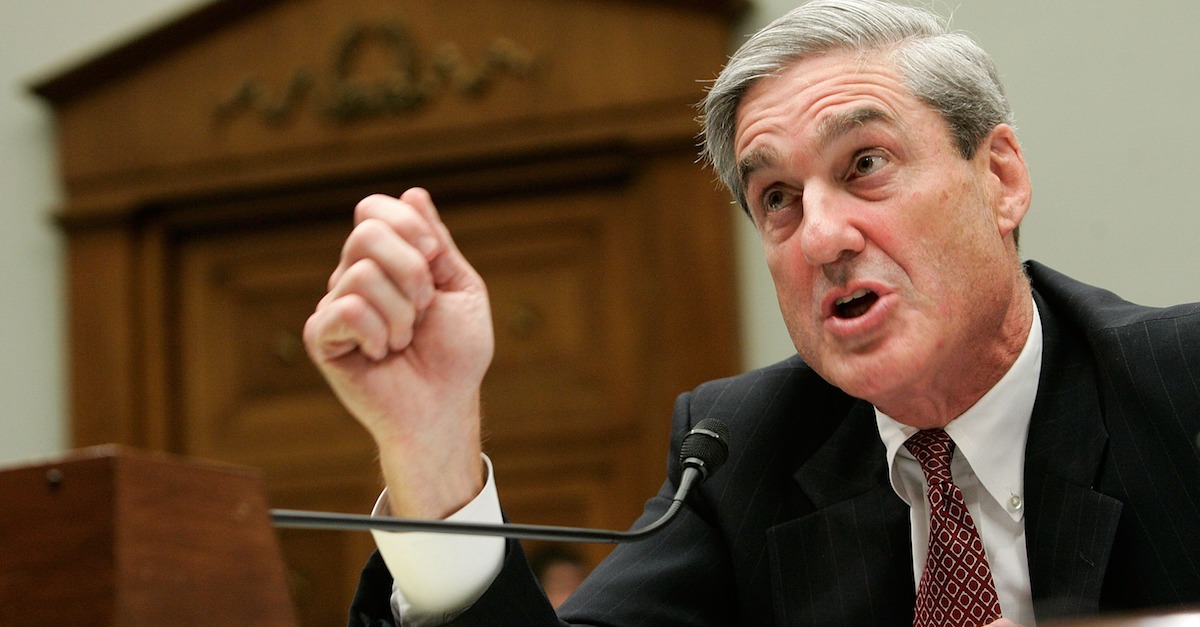
As we hear once again that President Donald Trump may attempt to keep select portions of the forthcoming special counsel report on Russian interference in the 2016 election away from the public and Congress by asserting executive privilege, another media outlet is reporting that February may be the month Robert Mueller finishes writing said report.
Trump and his lawyers expect to get an advance look at the report if there’s a chance it will be shared beyond the Justice Department. They may assert executive privilege to withhold any information related to Trump’s time in the White House or during the transition, depending on what’s included.
Explicit in Bloomberg’s reporting–and implicit in quite a bit of reporting on the Russiagate investigation–is the idea that Mueller is expected to wrap things up in fairly short order.
“Mueller may submit his findings on Russian interference in the 2016 presidential campaign to the Justice Department as early as February,” the Monday report claims, “according to one U.S. official.” The mid-February prediction was one also put out there by NBC News in December.
Where did that timeline come from? There are reports quoting anonymous sources purportedly familiar with what is happening in Mueller’s office, plus other reports that Mueller has begun writing his final Russia report, but there isn’t conclusive proof that indicates February holds any sort of special significance or that these predictions will be proven right.
Mueller recently had his Washington, D.C. grand jury extended for another six months. The original term for the grand jury was 18 months–which was scheduled to expire last weekend. Mueller’s grand jury was initially empaneled on August 3, 2017. While that six-month extension was seen as standard operating procedure, this could mean Mueller knows he’s got a bit more work to do and this extension could feasibly push the investigation well into mid-summer.
But even the above line of inquiry carries with it some degree of faulty logic because said line of inquiry assumes that a grand jury is technically necessary for the Russiagate investigation to continue. That isn’t actually the case. The special counsel’s investigation officially began on May 17, 2017–a full two-and-a-half months prior to the empaneling of Mueller’s federal grand jury later that year.
There’s also the fact of parallel state and federal investigations currently and potentially buoying Mueller’s primary inquiry.
The Southern District of New York (SDNY) and the State of New York have gone after various Trump satellites like Michael Cohen and the Trump Foundation. And that may not be close to the full extent of their work. You may recall, in the Cohen case, that Mueller was the one who referred it to the SDNY. Ultimately, Cohen ended up pleading guilty in the SDNY and the Mueller Probe. Cohen admitted to Mueller that he lied to congressional investigators asking about how long a Trump Tower negotiation in Moscow went on.
We have yet to see where else, if anywhere, that lie will lead. We also still don’t know if Mueller will hand down additional indictments, but names like Jerome Corsi and Roger Stone keep coming up.
As former prosecutor and current Law&Crime Network host Bob Bianchi noted, “Prosecutors know that if they do state law investigations that’s beyond the pardon power of the president and the DOJ opinion that you can’t indict a sitting president. There’s a lot of moving pieces and I don’t think that they’re looking at it in just one way. [Trump] is involved in a lot of investigations that could implicate a lot of state crimes.”
Former assistant director for counterintelligence Frank Figliuzzi made a similar argument:
I think there are plans being put in place. What I call a prosecutorial parachute with maybe sealed cases tied up in those for certain state, U.S. state district attorney’s offices and various U.S. attorneys around the states.
Mueller’s overall inquiry and eventual report, therefore, could rely upon various in-progress and potentially-in-progress inquiries across the country–or, at least in New York. And good luck with the guesstimates insofar as parallel/complementary investigations into years’ worth of alleged Trumpian misdeeds are concerned.
What’s with this timeline obsession, anyway? Let’s take a look back at a couple of recent special counsel investigations.
Independent counsel Ken Starr (who took over from special counsel Robert B. Fiske) dedicated himself to a wholesale investigation of all things potentially amiss with Bill and Hillary Clinton and ultimately turned up very little. Then-president Clinton was impeached by the U.S. House of Representatives as a result of Starr’s final report, but Clinton was then acquitted by the U.S. Senate. The length of this investigation? Almost four years.
Special counsel Patrick Fitzgerald investigated the George W. Bush administration after Dick Cheney and others allegedly outed a CIA agent. This investigation didn’t really bear much fruit either–despite an almost religious-like anticipation of “Fitzmas.” Scooter Libby was indicted by the Republican special counsel and Bush himself commuted Libby’s sentence years before he was eventually pardoned by President Trump. The length of this investigation? Nearly three-and-a-half years.
Mueller’s investigation, by comparison, has already uncovered widespread criminality and isn’t even two years old. When you consider what Mueller is dealing with here, in terms of scope, breadth and depth, as compared to special counsels past, it seems unlikely that he will be wrapping it all up by next month.
[Image via Alex Wong/Getty Images]
This is an opinion piece. The views expressed in this article are those of just the author.